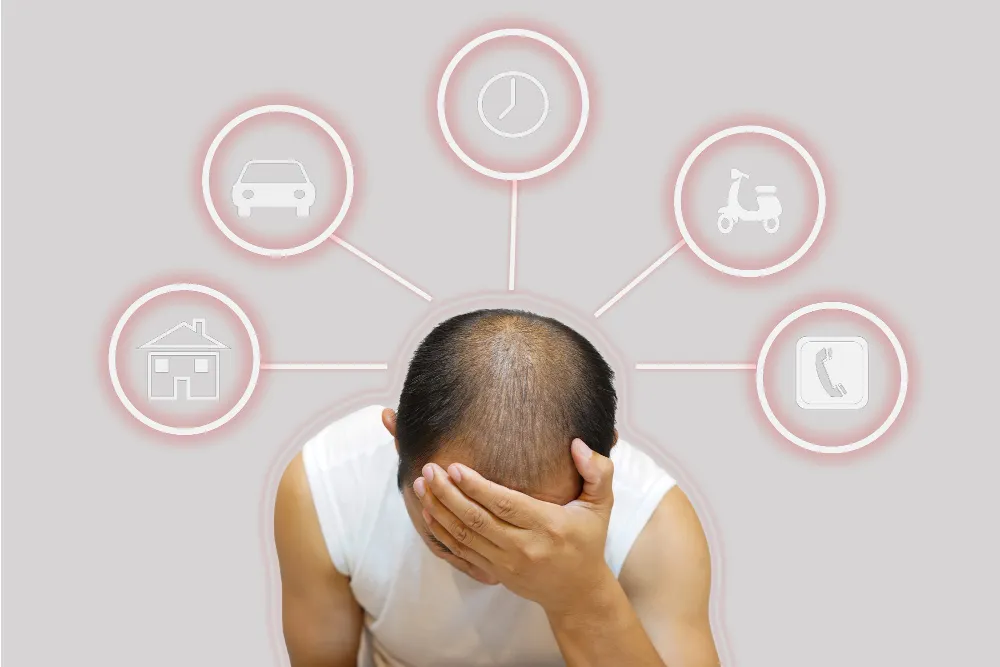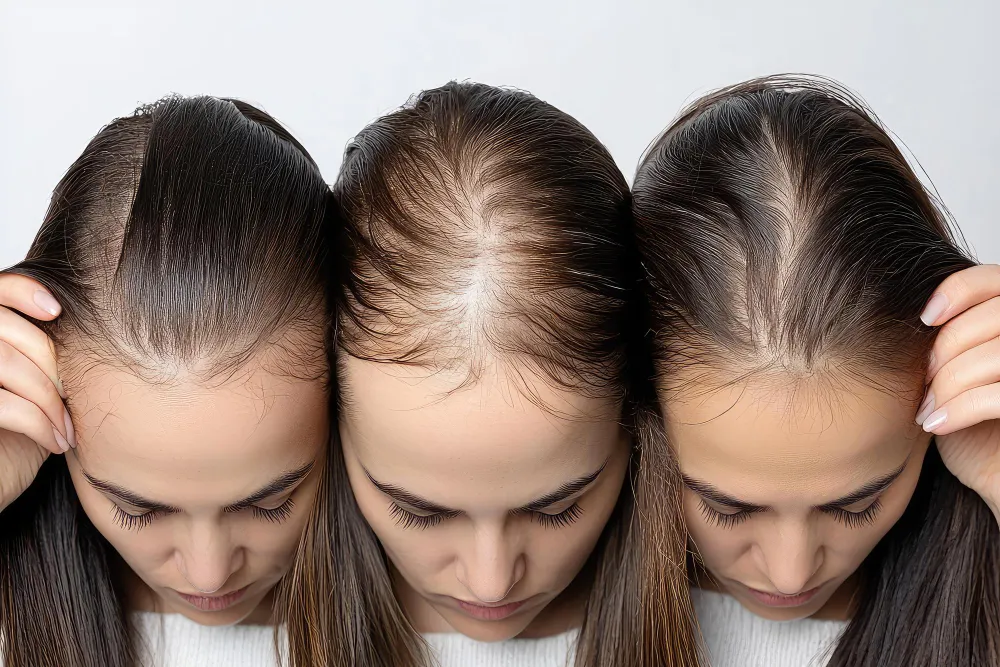Blogs

Understanding the factors that influence the hair growth cycle is key to maintaining healthy hair. Genetics, hormones, nutrition, and environmental conditions can all play a role in how your hair grows, sheds, and regrows.
Genetics
Some individuals inherit a predisposition to shorter and fewer cycles, especially in cases of androgenetic alopecia (hereditary hair loss). Sensitivity to dihydrotestosterone (DHT) can accelerate the cycle, leading to premature hair loss.

Hormones
Oestrogens can extend the anagen phase, while androgens and thyroid hormones tend to shorten it, potentially affecting growth. Hormonal changes in women, such as those during pregnancy or menopause, can also significantly impact the hair growth cycle.
- Oestrogens extend the anagen (growth) phase.
- Androgens and thyroid hormones can shorten the cycle.
- Pregnancy and menopause can cause hormonal fluctuations affecting hair growth.
Nutrition
Your diet has a direct impact on hair quality. Proteins, zinc, iron, and B vitamins are essential nutrients for healthy hair growth. A balanced diet ensures that your hair has the building blocks it needs to grow stronger.

Seasons
Environmental changes, such as temperature, light, and humidity, can influence hair shedding. It's typical for shedding to be most noticeable during the transition between seasons, particularly in spring and autumn.
- Spring and autumn are common seasons for hair shedding.
- Changes in temperature and light can alter hair shedding patterns.
When the Cycle Goes Off Track
The hair growth cycle naturally evolves with age. During childhood, the body produces more anagen phases, while after 50, the cycle tends to shorten. Regular monitoring of your hair's health can help identify unusual hair loss patterns early. For men, consulting a specialist can lead to timely intervention, whether through medication or advanced treatments.
For women, hormonal changes, such as those during pregnancy or menopause, can significantly affect hair growth and shedding. If you're concerned about hair loss, it's important to reach out to a dermatologist to address the issue.
Contact our Dermatologist today to explore personalized treatments and solutions for healthy hair growth.
Book Your Consultation